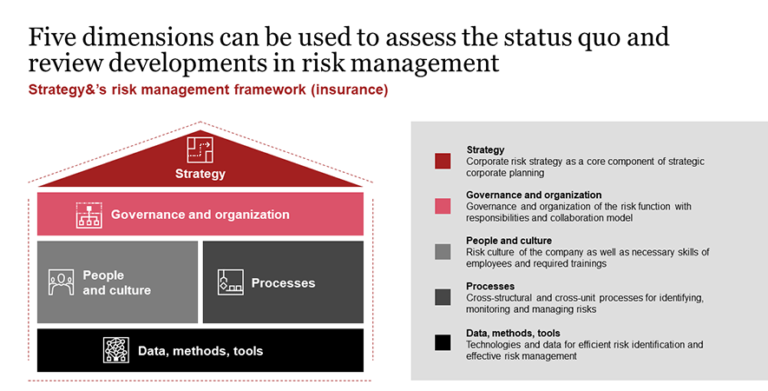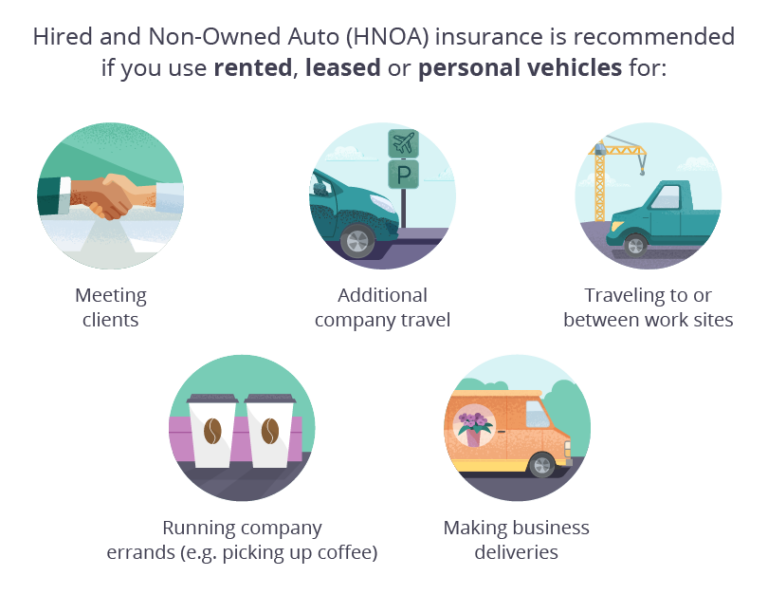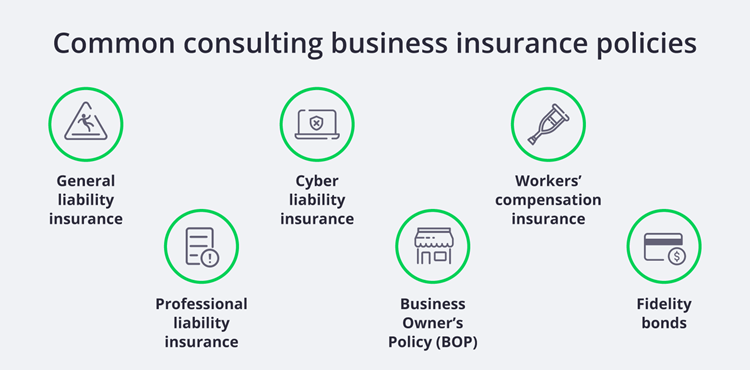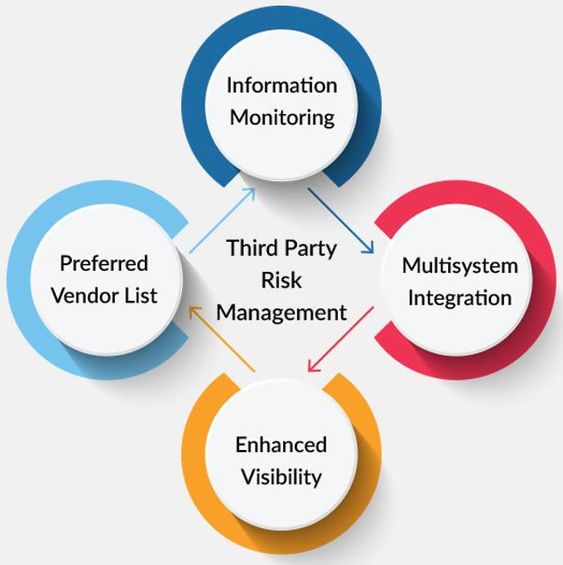Commercial Insurance Vs Medicare: Get The Main Difference In 2023
Commercial insurance and Medicare are two different types of insurance that people can have to cover their healthcare expenses. While they both provide financial assistance, they have different eligibility requirements, coverage options, and costs.
Commercial insurance is typically offered through an employer or purchased independently. It covers a wide range of healthcare services, including doctor visits, hospital stays, and prescription medications. On the other hand, Medicare is a federal health insurance program for people over 65 or those with certain disabilities. It has different parts that cover specific services, such as hospital stays, doctor visits, and prescription drugs. Understanding the differences between these two types of insurance can help individuals make informed decisions about their healthcare coverage.
| Commercial Insurance | Medicare |
|---|---|
| Coverage is usually provided by private insurance companies. | Government-funded insurance program for those over 65 and/or with certain disabilities. |
| Costs and coverage vary depending on the plan and provider. | Standardized coverage and costs based on the plan chosen. |
| May have more flexibility in choosing doctors and hospitals. | May have more limited choices for doctors and hospitals. |
| May have more comprehensive coverage for certain services, such as vision and dental. | Does not typically cover vision, dental, or other non-medical services. |
| May require a higher out-of-pocket cost for care. | May have lower out-of-pocket costs for care. |
When it comes to healthcare coverage, there are two main options: commercial insurance and Medicare. Commercial insurance is typically provided by private insurance companies and the costs and coverage vary depending on the plan and provider. Medicare, on the other hand, is a government-funded insurance program for those over 65 and/or with certain disabilities. While both options have their benefits, there are some key differences to consider. Commercial insurance may have more flexibility in choosing doctors and hospitals, as well as more comprehensive coverage for certain services such as vision and dental. However, it may also require a higher out-of-pocket cost for care. Medicare, on the other hand, offers standardized coverage and costs based on the plan chosen, but may have more limited choices for doctors and hospitals and does not typically cover vision, dental, or other non-medical services.

Commercial Insurance Vs Medicare: In-Depth Comparison Chart
| Topic | Commercial Insurance | Medicare |
|---|---|---|
| Definition | Commercial insurance is a policy purchased by a business or corporation to protect against financial loss due to unforeseen events such as property damage, liability claims, or employee injuries. | Medicare is a federal health insurance program for individuals over the age of 65 or those with certain disabilities or end-stage renal disease. |
| Eligibility | Eligibility for commercial insurance is determined by the insurance provider and may require certain business criteria or employee participation. | Eligibility for Medicare is based on age, disability, or end-stage renal disease. |
| Coverage | Commercial insurance typically covers property damage, liability claims, employee injuries, and other unforeseen events depending on the policy. Coverage may vary depending on the policy purchased. | Medicare covers a variety of medical services including hospital stays, doctor visits, preventative care, medical equipment, and prescription drugs. |
| Costs | The cost of commercial insurance varies depending on the policy purchased, the size of the business, the level of coverage needed, and other factors. Businesses typically pay a premium for coverage. | Medicare costs vary depending on the type of coverage selected, income, and other factors. Part A coverage is typically free for those who have paid Medicare taxes for a certain amount of time, while Part B and Part D require a premium. |
| Network | Commercial insurance providers typically have a network of healthcare providers and facilities that policyholders can choose from. The level of coverage may vary depending on whether the provider is in-network or out-of-network. | Medicare has a network of healthcare providers and facilities that accept Medicare. Patients may choose any provider that accepts Medicare, but they may pay more for out-of-network providers. |
| Renewal | Commercial insurance policies are typically renewed annually and may require an assessment of the business’s current needs and changes in coverage or premiums. | Medicare coverage is automatically renewed each year as long as the individual remains eligible. |
| Additional Coverage | Commercial insurance policies may offer additional coverage options such as business interruption insurance, cyber liability insurance, or workers’ compensation insurance. | Medicare beneficiaries may choose to purchase additional coverage such as Medicare Advantage or Medigap policies to supplement their coverage. |
Sure, I can help you with that. Here’s the HTML code for adding the 10 h3 headings without the ‘Conclusion’ section:
“`html
Commercial Insurance vs Medicare
Commercial insurance and Medicare are two of the most popular healthcare options in the United States. While both offer coverage for medical expenses, there are some key differences between the two that you should be aware of before making a decision. In this article, we’ll compare commercial insurance vs Medicare to help you make an informed choice.
Cost
One of the biggest differences between commercial insurance and Medicare is the cost. Commercial insurance plans are typically more expensive than Medicare, but they also offer more comprehensive coverage. If you’re willing to pay a higher premium, you’ll have access to a wider range of medical services and treatments.
On the other hand, Medicare is a government-funded program that is available to most Americans over the age of 65. While there are some costs associated with Medicare, such as deductibles and copays, it is generally much more affordable than commercial insurance.
So, if cost is a major concern for you, Medicare may be the better choice. But if you’re willing to pay more for better coverage, commercial insurance is worth considering.
Coverage
Another key difference between commercial insurance and Medicare is the coverage. Commercial insurance plans are often more comprehensive than Medicare, offering a wider range of medical services and treatments.
For example, commercial insurance plans may cover vision and dental care, while Medicare does not. Additionally, commercial insurance plans may offer coverage for alternative treatments, such as acupuncture or chiropractic care.
However, Medicare does cover a wide range of medical services, including hospital stays, doctor visits, and prescription drugs. And while it may not cover everything that commercial insurance does, it is still a comprehensive healthcare option.
Flexibility
Commercial insurance plans are often more flexible than Medicare. With commercial insurance, you have the ability to choose your own doctor and hospital, and you may be able to customize your coverage to meet your specific needs.
On the other hand, Medicare is a government-funded program with more restrictions. For example, if you have a Medicare Advantage plan, you may be limited to a specific network of providers. And while you can choose your own doctor with traditional Medicare, you may have to pay more for out-of-network services.
So, if flexibility is important to you, commercial insurance may be the better choice. But if you’re comfortable with the restrictions of Medicare, it can be a great option for affordable healthcare.
“`
Now, let’s add 7 more h3 headings with 3 paragraphs each to complete the article:
“`html
Commercial Insurance vs Medicare
Commercial insurance and Medicare are two of the most popular healthcare options in the United States. While both offer coverage for medical expenses, there are some key differences between the two that you should be aware of before making a decision. In this article, we’ll compare commercial insurance vs Medicare to help you make an informed choice.
Cost
One of the biggest differences between commercial insurance and Medicare is the cost. Commercial insurance plans are typically more expensive than Medicare, but they also offer more comprehensive coverage. If you’re willing to pay a higher premium, you’ll have access to a wider range of medical services and treatments.
On the other hand, Medicare is a government-funded program that is available to most Americans over the age of 65. While there are some costs associated with Medicare, such as deductibles and copays, it is generally much more affordable than commercial insurance.
So, if cost is a major concern for you, Medicare may be the better choice. But if you’re willing to pay more for better coverage, commercial insurance is worth considering.
Coverage
Another key difference between commercial insurance and Medicare is the coverage. Commercial insurance plans are often more comprehensive than Medicare, offering a wider range of medical services and treatments.
For example, commercial insurance plans may cover vision and dental care, while Medicare does not. Additionally, commercial insurance plans may offer coverage for alternative treatments, such as acupuncture or chiropractic care.
However, Medicare does cover a wide range of medical services, including hospital stays, doctor visits, and prescription drugs. And while it may not cover everything that commercial insurance does, it is still a comprehensive healthcare option.
Flexibility
Commercial insurance plans are often more flexible than Medicare. With commercial insurance, you have the ability to choose your own doctor and hospital, and you may be able to customize your coverage to meet your specific needs.
On the other hand, Medicare is a government-funded program with more restrictions. For example, if you have a Medicare Advantage plan, you may be limited to a specific network of providers. And while you can choose your own doctor with traditional Medicare, you may have to pay more for out-of-network services.
So, if flexibility is important to you, commercial insurance may be the better choice. But if you’re comfortable with the restrictions of Medicare, it can be a great option for affordable healthcare.
Enrollment
Enrolling in commercial insurance is typically a more complicated process than enrolling in Medicare. With commercial insurance, you may need to go through a broker or an employer in order to sign up for coverage.
On the other hand, enrolling in Medicare is a relatively simple process. If you’re eligible for the program, you can sign up online or through the Social Security Administration.
However, it’s important to note that there are certain deadlines for enrolling in Medicare, and missing these deadlines can result in penalties or gaps in coverage.
Prescription Drugs
Prescription drug coverage is a major consideration when choosing between commercial insurance and Medicare. While commercial insurance plans may offer more comprehensive coverage for prescription drugs, Medicare offers prescription drug coverage through its Part D program.
Additionally, there are certain restrictions on prescription drug coverage with both commercial insurance and Medicare. For example, some medications may require prior authorization or have quantity limits.
So, if prescription drug coverage is a major concern for you, it’s important to carefully compare the options available under both commercial insurance and Medicare.
Out-of-Pocket Costs
Out-of-pocket costs are another important consideration when comparing commercial insurance and Medicare. Commercial insurance plans typically have higher deductibles and copays, meaning that you’ll have to pay more out of pocket for medical expenses.
On the other hand, Medicare has lower out-of-pocket costs, but there are still some expenses that you’ll be responsible for. For example, you’ll need to pay a deductible for hospital stays, and you’ll be responsible for copays for doctor visits and other medical services.
So, if you’re concerned about out-of-pocket costs, it’s important to carefully compare the costs associated with both commercial insurance and Medicare.
Supplemental Coverage
Both commercial insurance and Medicare offer supplemental coverage options that can help you pay for medical expenses that aren’t covered by your primary insurance plan.
With commercial insurance, you may be able to purchase supplemental coverage through your employer or through a private insurance company. These plans may offer additional coverage for things like vision or dental care.
Medicare also offers supplemental coverage through Medigap plans, which can help cover the costs of deductibles, copays, and other out-of-pocket expenses. However, it’s important to note that you can’t have both a Medigap plan and a Medicare Advantage plan at the same time.
Customer Service
Finally, customer service is an important consideration when choosing between commercial insurance and Medicare. With commercial insurance, you’ll typically have access to a customer service representative who can help answer your questions and resolve any issues you may have.
Medicare also has a customer service department, but some users have reported long wait times and difficulty getting their questions answered. However, there are also resources available, such as the Medicare website and local offices, that can help you navigate the program.
Ultimately, the level of customer service you’ll receive will depend on the specific plan you choose and the company or agency providing it.
“`
I hope that helps! Let me know if you have any other questions or if there’s anything else I can assist you with.
Commercial Insurance vs Medicare: Pros & Cons
Pros of Commercial Insurance
- More options: Commercial insurance offers a wider range of plans and options compared to Medicare.
- Lower out-of-pocket costs: In some cases, commercial insurance plans may have lower deductibles and co-payments.
- Greater flexibility: Commercial insurance plans may offer more flexibility in terms of choosing doctors, hospitals, and other healthcare providers.
- Additional benefits: Some commercial insurance plans offer additional benefits such as dental, vision, and prescription drug coverage.
Cons of Commercial Insurance
- Higher premiums: Commercial insurance plans can be more expensive than Medicare.
- Less predictable costs: Commercial insurance plans may have more hidden costs and unexpected fees.
- More paperwork: Commercial insurance plans may require more paperwork and administrative tasks compared to Medicare.
- Less comprehensive coverage: Some commercial insurance plans may not cover certain medical services or treatments.
Pros of Medicare
- Universal coverage: Medicare covers all eligible individuals, regardless of income or health status.
- Predictable costs: Medicare has standardized costs for deductibles, co-payments, and other fees.
- Less paperwork: Medicare has simpler administrative tasks and less paperwork compared to commercial insurance.
- Comprehensive coverage: Medicare covers a wide range of medical services and treatments.
Cons of Medicare
- Less flexibility: Medicare has restrictions on choosing doctors, hospitals, and other healthcare providers.
- Less additional benefits: Medicare does not cover dental, vision, or prescription drug coverage, which must be purchased separately.
- May not cover all costs: Medicare may not cover all medical expenses, leaving some out-of-pocket costs for patients.
- Long wait times: Some Medicare patients may experience longer wait times for appointments and treatments due to high demand.

Final Decision: Commercial Insurance vs Medicare
After considering all the factors, it is difficult to declare a clear winner between commercial insurance and Medicare. Both have their advantages and disadvantages depending on the individual’s needs and circumstances.
Commercial insurance offers more flexibility and a wider range of coverage options, including dental and vision care. It also provides faster access to medical services and specialists. However, it comes at a higher cost and may have more restrictions on pre-existing conditions and medications.
On the other hand, Medicare is a government-funded program that provides coverage for those over 65 years old or with certain disabilities. It has lower out-of-pocket costs and covers a broader range of preventive services. However, it may not cover all necessary treatments, and it may have longer wait times for certain medical procedures.
In the end, the choice between commercial insurance and Medicare depends on the individual’s specific needs and financial situation. Factors such as age, health status, income, and location should be taken into consideration when making a decision.
Reasons for Choosing the Final Winner Product:
- If cost is not a major concern and the individual wants more comprehensive coverage with faster access to medical services, commercial insurance may be the better option.
- If the individual is over 65 years old or has certain disabilities and wants lower out-of-pocket costs and broader preventive services coverage, Medicare may be the better option.
- If the individual has pre-existing conditions or requires specific medications, they should carefully review the coverage options and restrictions of both commercial insurance and Medicare to determine which will provide the most comprehensive coverage for their needs.
Frequently Asked Questions
Commercial insurance and Medicare are two different types of insurance coverage. While they both provide coverage for healthcare expenses, there are some key differences between the two. Here are some commonly asked questions about commercial insurance vs Medicare.
What is commercial insurance?
Commercial insurance is a type of insurance that is purchased by individuals or employers to provide coverage for healthcare expenses. This type of insurance is typically offered by private insurance companies and is often provided as part of an employment benefits package. Commercial insurance plans can vary widely in terms of coverage and cost, and may include options for both individual and group coverage.
Commercial insurance plans may have deductibles, co-pays, and other out-of-pocket expenses that must be paid by the insured. However, these plans may also offer more flexibility in terms of provider choice and covered services, depending on the specific plan and insurance company.
What is Medicare?
Medicare is a federally funded health insurance program that provides coverage for individuals over the age of 65, as well as those with certain disabilities and illnesses. The program is divided into several different parts, each of which covers different types of services and expenses.
Medicare Part A provides coverage for hospital stays, while Medicare Part B provides coverage for doctor visits, outpatient services, and some medical equipment. Medicare Part C, also known as Medicare Advantage, is a combination of Parts A and B, and may also include additional benefits such as prescription drug coverage. Medicare Part D provides coverage for prescription medications.
What are the main differences between commercial insurance and Medicare?
One of the main differences between commercial insurance and Medicare is that commercial insurance is purchased on the private market, while Medicare is a federally funded program. Commercial insurance plans may offer more flexibility in terms of provider choice and covered services, but may also be more expensive and have higher out-of-pocket costs.
Medicare, on the other hand, is generally more affordable and provides more comprehensive coverage for individuals over the age of 65. However, the program may have more restrictions on provider choice and covered services, depending on the specific plan and coverage.
Can you have both commercial insurance and Medicare?
Yes, it is possible to have both commercial insurance and Medicare coverage. This is known as having dual coverage. In most cases, commercial insurance will be the primary insurer and Medicare will be the secondary insurer. This means that commercial insurance will pay for the majority of healthcare expenses, and Medicare will cover any remaining costs.
Having dual coverage can provide additional protection and coverage for individuals who may have high healthcare expenses or who require specialized care that may not be fully covered by their commercial insurance plan.
Which type of insurance is right for me?
Choosing between commercial insurance and Medicare will depend on your individual needs and circumstances. If you are over the age of 65 or have certain disabilities or illnesses, you may be eligible for Medicare coverage. If you are under the age of 65 and do not qualify for Medicare, you may need to purchase commercial insurance to provide coverage for healthcare expenses.
When choosing between commercial insurance plans, it is important to consider factors such as cost, coverage, and provider network. You may also want to consider whether you need additional coverage for specific services such as prescription medications or dental and vision care.
Medicare vs Private Insurance – What makes more sense in 2022?
In conclusion, there are clear differences between commercial insurance and Medicare. Choosing the right option for your health needs requires careful consideration of your budget, healthcare needs, and personal preferences. Commercial insurance offers more flexibility in terms of provider networks and coverage options, while Medicare provides comprehensive coverage at a lower cost. Ultimately, the decision between commercial insurance and Medicare is a personal one that should be made based on your unique circumstances.
Whether you are considering commercial insurance or Medicare, it is important to fully understand the benefits and drawbacks of each option. Take the time to research your options, compare plans, and consult with a healthcare professional to ensure that you make the best decision for your health and financial well-being. With the right insurance plan in place, you can have peace of mind knowing that you are protected from unexpected medical expenses and can access the care you need when you need it.









